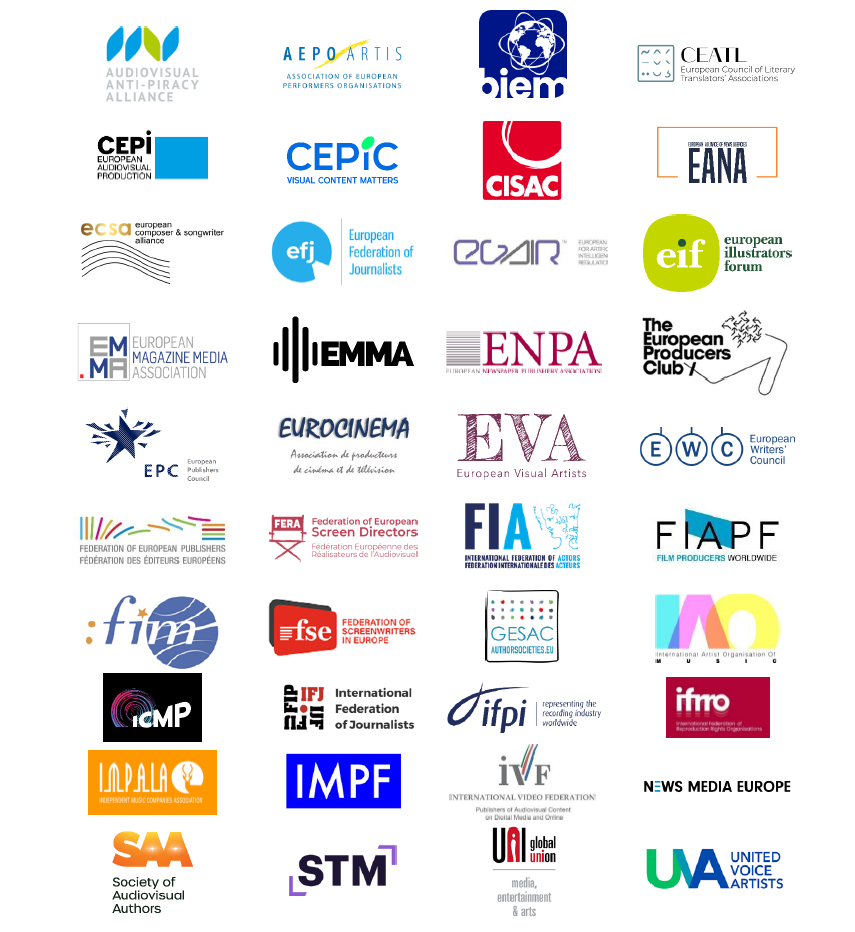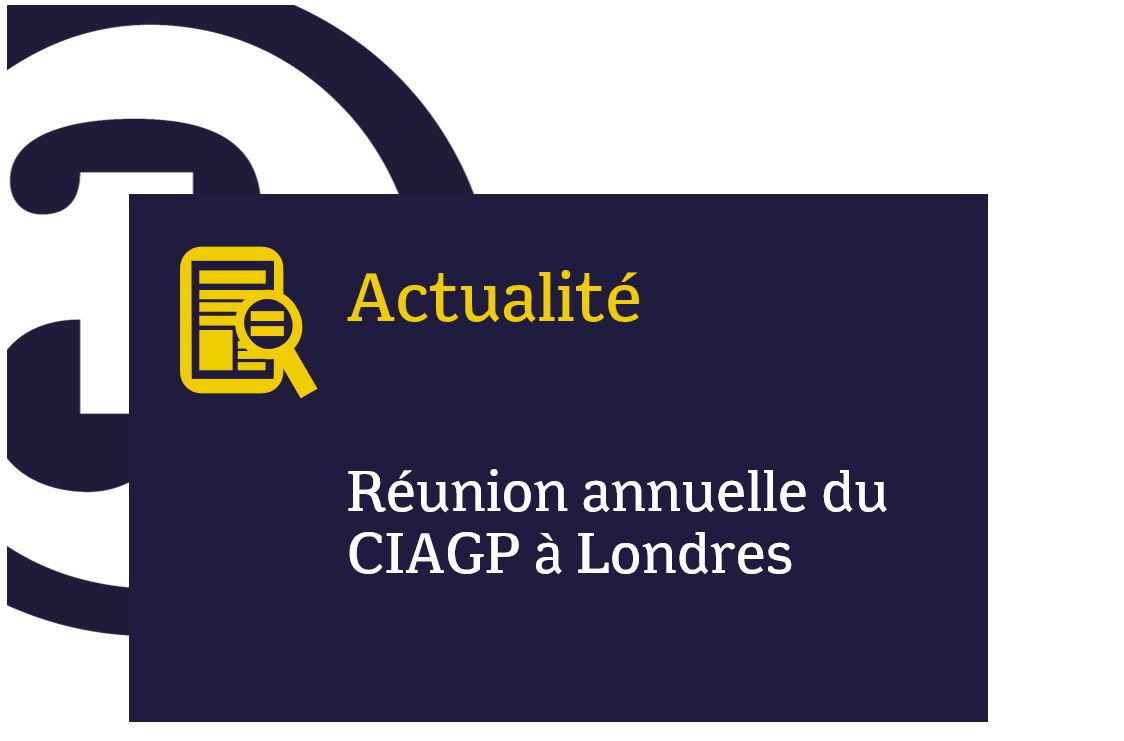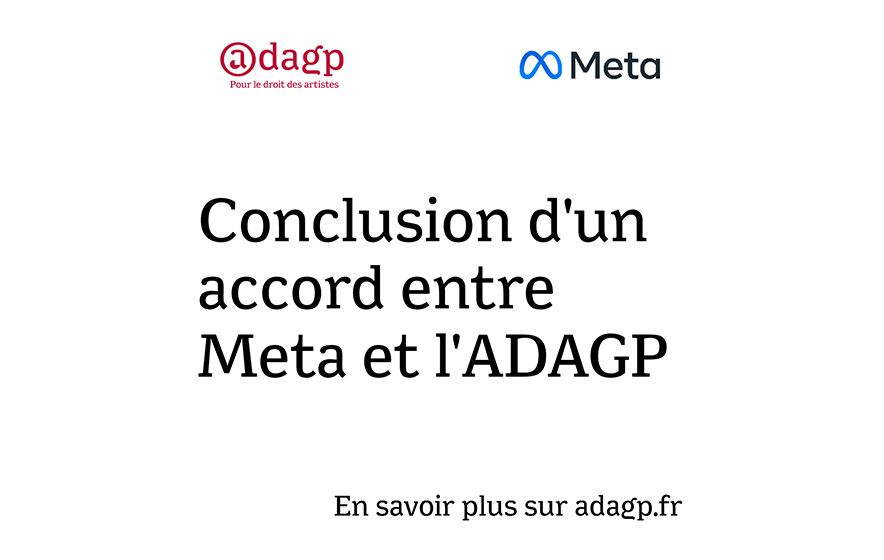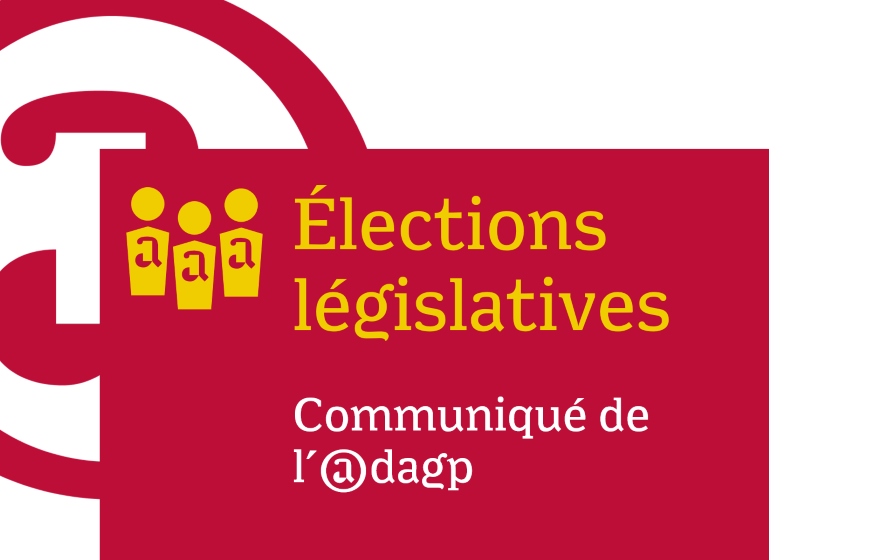Cultural sectors dissatisfied with the implementation of the EU AI Act
This summer, ADAGP, through its European representatives EVA and GESAC, took part in a large coalition of author, performer, publisher, and producer organisations who released a statement in response to the implementation of the European Union Artificial Intelligence Act (AI Act), in which they expressed serious concerns, as the measures passed by the European Commission are deemed insufficient to ensure the effective protection of creators’ rights.
Despite their active participation and goodwill all throughout the legislative process, cultural sectors regret that the spirit of the AI Act of 2024 is not reflected in the implementation, even though some of its principles had originally been saluted.
The measures adopted by the European Commission do not allow for true transparency on the use of copyrighted works in GenAI training, nor for a concrete application of copyright and related rights. While generative models keep developing exponentially, the shortcomings of the adopted measures risk weakening the whole European cultural sector, which represents nearly 7% of the GDP of the European Union, employs nearly 17 million professionals, and whose economic contribution is higher than that of the pharmaceutical, automobile or high tech sectors.
ADAGP and the representative coalitions call for the European Commission to reconsider its position and strengthen the implementation of the AI Act. They also ask the European Parliament and Member States to intervene to ensure a real balance between technological innovation and respect for intellectual property rights. The regulation of generative artificial intelligence through fair and transparent rules that respect copyright is crucial for the future of European creation and cultural diversity.
Read the full statement below:
Joint statement by a broad coalition of rightsholders active across the EU’s cultural and creative sectors regarding the AI Act implementation measures adopted by the European Commission
Brussels, 30 July 2025

Representing a broad coalition of European and global authors, performers, publishers, producers and other rightsholder organisations, we wish to formally express our dissatisfaction with the published GPAI Code of Practice, the GPAI Guidelines, and the Template for disclosure of a sufficiently detailed summary of training data under Article 53 of the EU AI Act.
Despite the extensive, highly detailed and good-faith engagements by rightsholder communities throughout this process, the final outcomes fail to address the core concerns which our sectors – and the millions of creators and companies active in Europe which we represent – have consistently raised.
The result is not a balanced compromise; it is a missed opportunity to provide meaningful protection of intellectual property rights in the context of GenAI and does not deliver on the promise of the EU AI Act itself.
We remind the European Commission that Article 53(1)(c) and (d) of the EU AI Act and related provisions were specifically designed to “facilitate holders of copyright and related rights to exercise and enforce their rights under (European) Union law” in response to ongoing, wholesale unlicensed use of their works and other protected content by GenAI model providers in disregard of EU rules. However, the feedback of the primary beneficiaries these provisions were meant to protect has been largely ignored in contravention of the objectives of the EU AI Act as determined by the co-legislators and to the sole benefit of the GenAI model providers that continuously infringe copyright and related rights to build their models.
In 2024, the cultural and creative sectors across Europe welcomed the principles of responsible and trustworthy AI enshrined in the EU AI Act, intended to ensure mutually beneficial growth of innovation and creativity in Europe. Today, with the EU AI Act implementing package as it stands, thriving cultural and creative sectors and copyright intensive industries in Europe which contribute nearly 7% of EU GDP, provide employment for nearly 17 million professionals and have an economic contribution larger than European pharmaceutical, automobile or high-tech industries, are being sold out in favour of those GenAI model providers.
The deployment of GenAI models and content production systems which also make extensive use of scraping is already underway. The damage to and unfair competition with the cultural and creative sectors can be seen each day. The cultural and creative sectors must be safeguarded, as they are the foundations of our cultures and the Single Market.
We wish to make it clear that the outcome of these processes does not provide a meaningful implementation of the GPAI obligations under the AI Act. We strongly reject any claim that the Code of Practice strikes a fair and workable balance or that the Template will deliver “sufficient” transparency about the majority of copyright works or other subject matter used to train GenAI models. This is simply untrue and is a betrayal of the EU AI Act’s objectives.
We call on the European Commission to revisit the implementation package and enforce Article 53 in a meaningful way, ensuring that the EU AI Act lives up to its promise to safeguard European intellectual property rights in the age of generative AI.
We also call on the European Parliament and Member States, as co-legislators, to challenge the unsatisfactory process of this exercise, which will further weaken the situation of the creative and cultural sectors across Europe and do nothing to tackle ongoing violations of EU laws.


